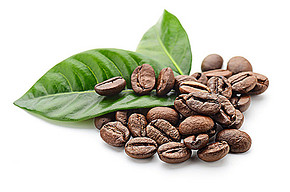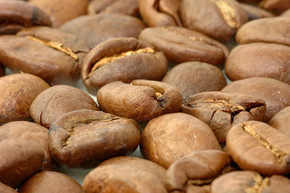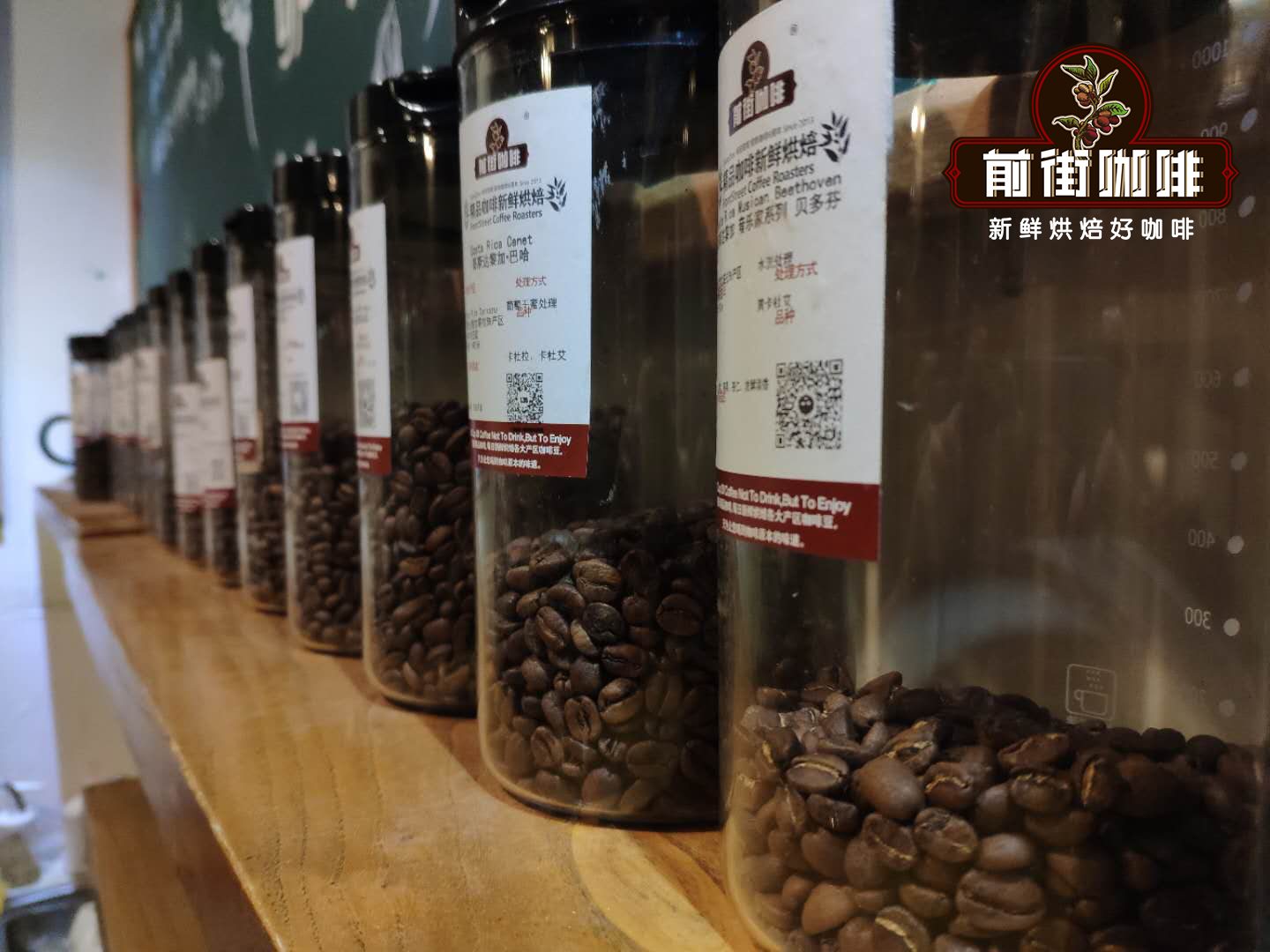Introduction of Yunnan small Coffee hand-made Culture description of the flavor and taste of Yunnan coffee beans
Follow the caf é (Wechat official account vdailycom) and found that Beautiful Cafe opened a small shop of its own.
The first thing that comes to mind when mentioning Yunnan is rice noodles.
But there is also a hidden "foreign" thing in Yunnan.
Beijing and Shanghai are essential to the sentiment of petty bourgeoisie.

Even the "foreigners" from abroad are full of praise.
Low-key Yunnan coffee
The silent fragrance wafts all over China and to the whole world
A few things you don't know about Yunnan coffee
SOMETHING ABOUT YUNNAN COFFEE
1. Yunnan Province is currently the only place where Chinese mainland buys coffee beans.
2. Yunnan limited edition espresso from Dolce Gusto, a high-end brand of Nestle Coffee, is on the market in China. The product is available in 70 countries around the world, and all the raw materials are collected from coffee plantations in Yunnan.
3. By the end of 2015, Yunnan had a coffee planting area of 1.87 million mu and a coffee output of 139000 tons, accounting for more than 99 percent of the country's total.
Coffee culture
What's coffee? To put it simply, coffee is a common drink and one of the three largest drinks in the world. But it is definitely not a monotonous drink. Coffee is something that can be tasted and felt slowly, just like Chinese tea.
Like tea, coffee has given birth to a coffee culture. After 1615, Pennsylvania began to spread coffee all over Europe, and the heat of coffee set off friction everywhere.
Drinks from Islamists are also brought to Christians in Rome. King Clement VIII of France at that time, although it was the devil's drink, it was so delicious. It's a pity to leave this drink to the heathen. " So he accepted the coffee for the Christians who came to be baptized.
There are countless coffee houses in England, which are very popular in gentlemen's social places. Men are talking about politics, literature, business and so on. At that time, only men could enter the coffee shop, and some of them didn't even go home. So in 1674 many housewives petitioned to lock up the coffee shop.
Turkish coffee also spread to France. It began when the Turkish ambassador offered coffee to Louis XIV in 1669. French upper-class society has also been influenced by charm and produced countless salons, resulting in brand-new literature, philosophy or art. The coffee culture also affected the general public, and the coffee on the street corner began to be filled with coffee, especially coffee, which was born in 1686. Brogob ". Because of Balzac, Rousseau and other cultures, people continue to gather, and are famous for intellectual salons.
Coffee and Yunnan
Coffee can be divided into Brazilian Coffee, Hawaiian Coffee, Kenyan Coffee, Java Coffee, Mantenin Coffee, Amber Coffee, Mamba Coffee, Irish Coffee, Vietnamese Coffee, Costa Rica Coffee, Santos Coffee, Colombian Coffee, Mexican Coffee, Italian Coffee, French Coffee, Jamaica Coffee, Yunnan Coffee.
Coffee spread to Yunnan from abroad. In 1904, Tian Deneng, a French Catholic missionary, received an arrangement from the church's Dali diocese to take another French priest, Lu Hongru, and a Chinese servant, Deng Peigen, to the Binchuan area under the jurisdiction of Dali to proclaim the will of the Lord.
Among the items they carry with them, in addition to the Bible, personal clothing, some production tools and medicines, as well as coffee beans and coffee seedlings they buy when passing through Vietnam, because Tian Deneng loves to drink coffee. Although the French have grown coffee in Vietnam and Laos since the early 19th century, missionaries in Dali are often unable to drink fresh coffee because of inconvenient transportation.
Finally, after searching, the seedlings of coffee trees were finally planted in the small mountain village of Zhukula, and it was convenient for coffee in China to have a fate.
The local villagers fell in love with coffee with the priest. to this day, in this remote rural area of southwestern China, what they give their guests is still coffee, and they will roast it in a big iron pot where they cook. Then grind the coffee powder on the stone mill of the flour mill, and finally, just like brewing Turkish coffee, wrap it in gauze and cook it in a teapot.
Yunnan small grain coffee
Yunnan coffee was planted on a large scale in the mid-1950s, with a planting scale of 4000 hectares at one time. By the end of 1997, the planting area of coffee in the province had reached 7800 hectares. Today, Yunnan has become the largest coffee producer in the country.
The western and southern parts of Yunnan Province are located between 15 °N and the Tropic of Cancer, most of which are 1000-2000 meters above sea level, and the topography is dominated by mountains and slopes. With fertile land, sufficient sunshine, rich rainfall and large temperature difference between day and night, the unique natural conditions have formed the unique small-grain coffee in Yunnan.
Small grains of coffee taste unique-strong but not bitter, fragrant but not strong, slightly fruity.
Pu'er, Xishuangbanna, Wenshan, Baoshan, Dehong, Lincang and other places in the south and west of Yunnan are all the distribution areas of small-grain coffee in Yunnan.
The coffee grown in Yunnan mainly uses organic fertilizers and organic pesticides, and the coffee produced is of high quality and is one of the rare high-quality coffee producing areas in the world.
Coffee is good for the skin. Coffee can promote metabolic function, activate digestive organs, and has a great effect on constipation. Taking a bath with coffee powder is a kind of thermotherapy, which has the effect of losing weight.
Coffee has the function of relieving alcohol. Drinking coffee after drinking alcohol will quickly oxidize the acetaldehyde converted from alcohol, decompose it into water and carbon dioxide and discharge it out of the body.
Coffee can relieve fatigue. In order to eliminate fatigue, we must supplement nutrition, rest and sleep, and promote metabolic functions, and coffee has these functions.
Caffeinated coffee stimulates gallbladder contraction and reduces cholesterol, which is prone to gallstones. New Harvard researchers have found that men who drink two to three cups of coffee a day are less than 40 per cent more likely to develop gallstones.
Drinking coffee can prevent radiation damage. Radiation damage, especially the radiation of electrical appliances, has become a prominent pollution at present.
Coffee has the functions of anti-oxidation and heart protection, strengthening muscles and bones, benefiting waist and knees, appetizer, eliminating fat and accumulation, promoting orifice and dehumidification, promoting blood circulation and removing blood stasis, relieving wind and relieving spasm and so on.
Liang Houfu, a famous news critic in the United States, wrote:
"the best place for coffee in the world is in Yunnan, and the coffee from Yunnan is very enjoyable when it touches the tongue."
What do you say? would you like a drink now?
Enjoy the low-key and luxurious coffee.
Important Notice :
前街咖啡 FrontStreet Coffee has moved to new addredd:
FrontStreet Coffee Address: 315,Donghua East Road,GuangZhou
Tel:020 38364473
- Prev

Introduction of Starbucks Yunnan coffee beans, the quality of Starbucks Yunnan coffee
Following Kaiping (official account vdailycom of Wechat) found that Starbucks opened a small shop of its own, Starbucks' first coffee bean from a single producing area in China, Starbucks Yunnan coffee beans, which went on sale simultaneously in all Starbucks stores in China on January 3, 2017. This coffee uses 100% of the high-quality Arabica beans grown in Yunnan and pours Starbucks' preference for preferred coffee.
- Next

Introduction to the Flavor of Yunnan Fine Coffee the extraction parameters of water-powder specific water temperature of Yunnan coffee
Follow the caf é (Wechat official account vdailycom) found that the beautiful cafe opened a small shop of its own. Chinese coffee is concentrated in Yunnan and Hainan provinces. Yunnan has a large output, with an annual output of about 26000 tons in recent years, accounting for 90 per cent of the country's output. It is said that Yunnan coffee came from the French 70 or 80 years ago.
Related
- Detailed explanation of Jadeite planting Land in Panamanian Jadeite Manor introduction to the grading system of Jadeite competitive bidding, Red bid, Green bid and Rose Summer
- Story of Coffee planting in Brenka region of Costa Rica Stonehenge Manor anaerobic heavy honey treatment of flavor mouth
- What's on the barrel of Blue Mountain Coffee beans?
- Can American coffee also pull flowers? How to use hot American style to pull out a good-looking pattern?
- Can you make a cold extract with coffee beans? What is the right proportion for cold-extracted coffee formula?
- Indonesian PWN Gold Mandrine Coffee Origin Features Flavor How to Chong? Mandolin coffee is American.
- A brief introduction to the flavor characteristics of Brazilian yellow bourbon coffee beans
- What is the effect of different water quality on the flavor of cold-extracted coffee? What kind of water is best for brewing coffee?
- Why do you think of Rose Summer whenever you mention Panamanian coffee?
- Introduction to the characteristics of authentic blue mountain coffee bean producing areas? What is the CIB Coffee Authority in Jamaica?

